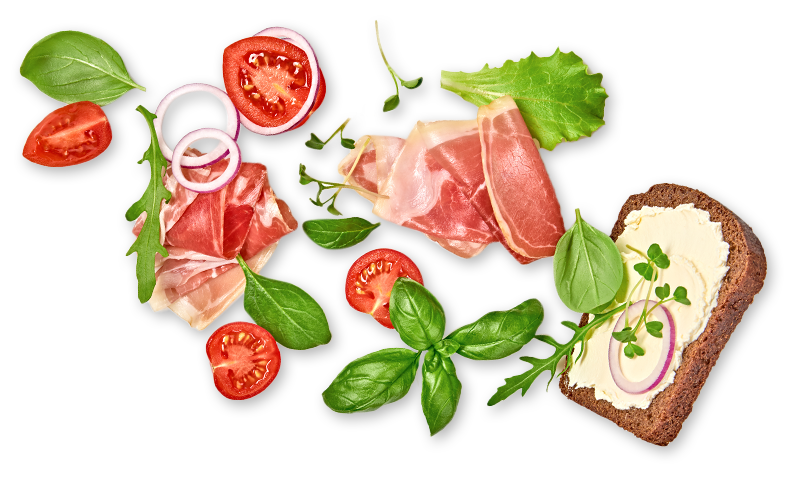Is Chai Tea Safe During Pregnancy? Expectant mothers need to pick safe drinks carefully. Chai tea is a favorite but raises safety concerns. Knowing what’s in chai tea helps figure out if it’s safe for pregnant women.
Chai tea mixes black tea, milk, and spices. Its safety depends on its ingredients and caffeine. Drinking it in moderation is best. It can be part of a healthy diet, but knowing the risks and benefits is important.
It’s key to understand chai tea and pregnancy. This article will look into chai tea’s makeup, its risks and benefits, and how to drink it safely.
Key Takeaways
- Chai tea can be a part of a balanced diet during pregnancy when consumed in moderation.
- Expectant mothers should be aware of the caffeine content in chai tea and its potential effects on the fetus.
- Choosing pregnancy-safe ingredients and being mindful of spice composition can help minimize risks.
- Understanding the relationship between chai tea and pregnancy is crucial for making informed decisions about its consumption.
- Is chai tea safe during pregnancy? The answer depends on various factors, including the amount of caffeine and the individual’s overall health.
- Pregnant women can enjoy chai tea as a pregnancy-safe beverage when they follow guidelines and recommendations from healthcare providers.
Understanding Chai Tea Composition
Is Chai Tea Safe During Pregnancy? Chai tea is a favorite drink made from chai tea ingredients like black tea, spices, and milk. The mix of chai tea can change based on the tea type and where it’s made.
In traditional chai tea, the ingredients are mixed in a certain way to get a special taste. Spices like cinnamon, ginger, and cardamom are used. They are thought to be good for health.
Traditional Chai Tea Ingredients
- Black tea
- Ginger
- Cinnamon
- Cardamom
Common Commercial Variations
Commercial chai tea variations are quite different from the traditional kind. Some brands use artificial flavors and sweeteners. But, many are now offering natural and organic choices. This is because more people want healthier drinks.
Caffeine Content in Chai Tea
The amount of caffeine in chai tea can change based on the tea type and how it’s brewed. Usually, a cup of chai tea has 40 to 70 milligrams of caffeine. This is less than what you find in other caffeinated drinks.
The Relationship Between Chai Tea and Pregnancy
Many women wonder if chai tea is safe during pregnancy. Drinking chai tea in moderation is usually okay. But too much caffeine can harm the growing baby. It’s important to know how chai tea affects both mom and baby.
Chai tea is a good choice instead of coffee for pregnant women. But, watch the caffeine in chai tea to stay safe. Eating well and staying healthy supports the baby’s growth.
- Keep an eye on caffeine intake to not have too much.
- Choose pregnancy-safe drinks with little caffeine.
- Know how chai tea might affect the baby.
| Pregnancy Stage | Recommended Caffeine Intake |
|---|---|
| First Trimester | Less than 100mg per day |
| Second Trimester | Less than 200mg per day |
| Third Trimester | Less than 200mg per day |
By following these tips and drinking chai tea in small amounts, women can enjoy it. This way, they can have a healthy pregnancy.
Caffeine Guidelines During Pregnancy
Understanding caffeine guidelines during pregnancy is key. The American College of Obstetricians and Gynecologists advises pregnant women to limit their pregnancy-safe caffeine intake to 200mg or less daily.
Daily Recommended Limits
A typical 8-ounce cup of coffee has about 95-200mg of caffeine. Pregnant women can safely have one cup of coffee a day. But, they should also watch out for caffeine in tea, chocolate, and some medications.
Effects of Excessive Caffeine
Excessive caffeine effects can harm both the mother and the baby. Too much caffeine can increase the risk of miscarriage, growth issues, and other problems. Pregnant women need to know the risks and keep their caffeine intake in check.
Tracking Your Caffeine Intake
Women should track their caffeine intake to have a healthy pregnancy. They can do this by reading labels, asking about caffeine in foods and drinks, and keeping a food diary. Being mindful of caffeine helps pregnant women have a safe and healthy pregnancy.
Benefits of Drinking Chai Tea While Pregnant
Drinking chai tea during pregnancy offers many benefits of chai tea. It provides essential antioxidants and nutrients. The herbal tea benefits support a healthy pregnancy. Also, moderate caffeine intake can have positive effects.
Some key pregnancy benefits of drinking chai tea include:
- Antioxidant properties to help protect against cell damage
- Possible immune system support
- May help reduce inflammation
It’s important to remember that while chai tea has benefits of chai tea, too much caffeine is bad during pregnancy. A balanced approach to drinking chai tea is key for a healthy pregnancy.
Adding chai tea to your pregnancy diet can be a good choice. Just make sure to drink it in moderation and as part of a balanced lifestyle.
Safety Concerns of Chai Spices During Pregnancy
When you’re pregnant, it’s important to think about the safety of chai spices. Some spices are okay, but others might not be. Knowing which spices are safe is key.
Spices like cinnamon and ginger are often in chai tea and are usually safe. But, it’s good to know about the risks of other spices. This way, pregnant women can choose their chai tea wisely.
Cinnamon Safety
Cinnamon is a common spice in chai tea and is usually safe during pregnancy. It might even help with inflammation and blood sugar control.
Cardamom Considerations
Cardamom is also in chai tea and is mostly safe. But, too much can upset your stomach. It’s good to use it in moderation.
Ginger Benefits and Risks
Ginger is a favorite spice in chai tea. It can help with nausea and inflammation. But, too much ginger can upset your stomach. So, it’s best to use it in small amounts.
Other Spice Components
Spices like cloves and nutmeg might not be safe during pregnancy. It’s important to know about the risks of these spices. And, to use them carefully.
| Spice | Safety Concerns | Potential Benefits |
|---|---|---|
| Cinnamon | Generally considered safe | Reduces inflammation, improves blood sugar control |
| Cardamom | High doses may cause stomach upset | May help reduce nausea and inflammation |
| Ginger | High doses may cause stomach upset | Reduces nausea and inflammation |
Is Chai Tea Safe During Pregnancy: Expert Guidelines
Drinking chai tea while pregnant is a big decision. Expert guidelines help make sure it’s safe and healthy. Healthcare providers say it’s okay to have some, but watch out for caffeine and spice levels.
It’s important to know what’s in chai tea and how it might affect you. Healthcare providers advise pregnant women to keep caffeine low. Here are some tips:
- Look for a pregnancy-safe chai tea with little caffeine and safe spices.
- Stick to expert guidelines for drinking 1-2 cups a day.
- Talk to your healthcare provider about any worries or questions.
By being careful and following these tips, pregnant women can enjoy chai tea. It’s a tasty and comforting drink that’s good for them.

| Chai Tea Component | Potential Effect on Pregnancy |
|---|---|
| Caffeine | May increase heart rate and blood pressure |
| Spices (e.g., cinnamon, ginger) | Generally considered safe in moderation |
Making Pregnancy-Safe Chai Tea at Home
To make a tasty and safe homemade chai tea, pick ingredients that are okay for pregnancy. Look for teas with little caffeine and spices that are safe. Ginger, cinnamon, and cardamom are good choices.
Here are some tips for making your chai tea:
- Use filtered water to avoid contamination.
- Don’t steep the tea too long to keep caffeine low.
- Keep your chai tea in a cool, dry spot for safe storage.
For safe storage, use airtight containers. This keeps your tea and spices fresh. By following these tips, you can enjoy a warm homemade chai tea safely during pregnancy.
Making your own chai tea lets you control the ingredients and spice levels. It also gives you peace of mind, knowing you’re using safe ingredients. This can make you feel more connected to your body during pregnancy.
| Ingredient | Pregnancy Safety |
|---|---|
| Ginger | Generally considered safe |
| Cinnamon | Considered safe in moderation |
| Cardamom | Considered safe in moderation |
Decaffeinated Chai Tea Options
For pregnant women, decaffeinated chai tea is a safe and tasty choice. Many brands offer caffeine-free options that taste great. These teas let pregnant women enjoy chai without caffeine’s risks.
Popular herbal tea alternatives include rooibos chai, peppermint chai, and ginger chai. These teas are caffeine-free and calm. When looking for decaffeinated chai tea, choose brands with natural ingredients and low caffeine.
- Low caffeine content
- Naturally flavored with spices and herbs
- Rich in antioxidants
- Can be enjoyed hot or iced
In conclusion, decaffeinated chai tea and herbal tea alternatives are great for pregnant women. They offer the benefits of chai without caffeine’s risks. With many caffeine-free options out there, finding a safe and tasty chai is easy.
| Tea Type | Caffeine Content | Benefits |
|---|---|---|
| Decaffeinated Chai Tea | Less than 2mg per 8oz cup | Low caffeine, rich in antioxidants |
| Rooibos Chai | Caffeine-free | Naturally flavored, high in antioxidants |
| Peppermint Chai | Caffeine-free | Soothing, calming effect |
Best Times to Drink Chai Tea While Pregnant
Drinking chai tea at the right time is key for pregnant women. It helps balance caffeine intake with body needs. Knowing when to drink chai tea is important for making good tea choices.
It’s vital to watch caffeine in chai tea during pregnancy. The safe limit is 200mg, like in one brewed coffee cup. Chai tea has less caffeine, but still, be careful with how much you drink.
Morning Consumption
Drinking chai tea in the morning boosts energy. But, remember to keep caffeine intake under 200mg.
Afternoon Guidelines
A chai tea in the afternoon can be a great pick-me-up. Just think about your caffeine intake and when you last ate.
Evening Considerations
Try to avoid chai tea with caffeine in the evening. It can mess with your sleep. Herbal or decaf chai tea is better for unwinding before bed.
Here is a summary of the best times to drink chai tea while pregnant:
| Time of Day | Recommendation |
|---|---|
| Morning | Drink in moderation, considering caffeine intake |
| Afternoon | Drink in moderation, considering timing of last meal and caffeine intake |
| Evening | Avoid drinking chai tea with caffeine, opt for herbal or decaf instead |

Signs You Should Reduce Chai Tea Intake
When you’re pregnant, watching your caffeine intake is key to staying safe. Some signs might tell you to cut back on chai tea. These signs include too much caffeine intake, which can cause problems like miscarriage, slow growth, and early labor.
Here are some common signs to watch for:
- Feeling jittery or anxious after drinking chai tea
- Seeing your heart rate or blood pressure go up
- Having trouble sleeping or feeling tired all the time
- Feeling sick or dizzy after drinking chai tea
If you notice any of these signs, it’s time to think about drinking less chai tea. This can help lower the risk of pregnancy complications. Talking to your healthcare provider about caffeine intake during pregnancy is also a good idea.
By paying attention to these signs and drinking less chai tea, you can help keep your pregnancy healthy. This way, you can avoid any serious problems.
| Signs to Reduce Chai Tea Intake | Description |
|---|---|
| Excessive Caffeine Intake | Drinking more caffeine than you should |
| Pregnancy Complications | Higher risk of miscarriage, slow growth, and early labor |
Herbal Alternatives to Traditional Chai Tea
For pregnant women, finding a safe and tasty chai tea alternative is key. Herbal teas offer a variety of flavors and health benefits without caffeine or harmful ingredients. Peppermint, chamomile, and ginger teas are great choices. They can be enjoyed hot or cold, sweetened with honey or sugar.
There are many pregnancy-safe tea options out there. Here are a few examples:
- Rooibos tea, a caffeine-free tea from South Africa
- Decaffeinated black tea, which has most of its caffeine removed
- Herbal blends, which can include a variety of herbs and spices
Pregnancy-Safe Tea Options
Aside from herbal teas, you can also make your own spice blend options. These blends can include cinnamon, ginger, and cardamom. You can adjust them to your liking.
Spice Blend Alternatives
Here are some popular spice blend alternatives:
| Spice Blend | Description |
|---|---|
| Ginger and Cinnamon | A warm and spicy blend that is perfect for cold winter days |
| Cardamom and Ginger | A sweet and spicy blend that is great for digestion |
| Cinnamon and Nutmeg | A warm and aromatic blend that is perfect for fall and winter |
Common Myths About Chai Tea During Pregnancy
There are many chai tea myths that confuse pregnant women. They worry about the safety of drinking chai tea. Let’s clear up some pregnancy myths about chai tea.
Not all chai teas are the same. The common myths come from not knowing about its ingredients and how it’s made. For example, some chai teas have more caffeine than others.
- Chai tea is always high in caffeine: This is not true, as some chai teas have lower caffeine content than others.
- Chai tea is unsafe for pregnant women: While some ingredients in chai tea may be problematic, moderate consumption is generally considered safe.
- Chai tea has no health benefits: On the contrary, chai tea contains antioxidants and other nutrients that can be beneficial for overall health.

To make smart choices about chai tea myths and pregnancy myths, talk to trusted sources and healthcare providers. This way, pregnant women can enjoy chai tea safely.
“A healthy pregnancy is all about balance and moderation. By understanding the facts about chai tea, expectant mothers can make choices that support their well-being and the health of their baby.”
In conclusion, it’s important to know the truth about common myths about chai tea during pregnancy. By being informed and careful about what’s in it, pregnant women can enjoy chai tea safely.
When to Consult Your Healthcare Provider
As a pregnant woman, knowing the risks of chai tea is key. If you notice warning signs like too much caffeine or spice allergies, talk to your healthcare provider right away.
When you see your doctor, share your chai tea habits and any safety worries. Discuss your overall health too. Your healthcare provider can guide you on what’s best for your diet and lifestyle.
Watch out for these warning signs:
- Excessive caffeine intake
- Allergic reactions to certain spices
- Increased heart rate or blood pressure
- Dizziness or lightheadedness
Knowing these risks and talking to your healthcare provider lets you enjoy chai tea safely. Always put your health and your baby’s first by being careful with your chai tea and getting medical advice when needed.
Tips for Safe Chai Tea Consumption
When you’re pregnant, it’s important to know how to drink chai tea safely. You should watch your caffeine intake, be careful with spices, and choose herbal teas. These pregnancy-safe tips help you enjoy chai tea without risking your health or your baby’s.
Here are some important things to remember for safe chai tea consumption:
- Limiting caffeine intake to recommended levels
- Choosing herbal tea options that are caffeine-free
- Avoiding spices that may pose a risk during pregnancy
Also, herbal tea tips like picking decaf chai or using special spice blends for pregnant women are useful. Being aware and cautious lets you savor the cozy taste of chai tea while keeping your health and your baby’s safe.
Conclusion
Is Chai Tea Safe During Pregnancy? Chai tea can be safe for pregnant women if enjoyed in small amounts. It’s important to watch out for caffeine and the spices used in chai. This way, expectant mothers can enjoy chai tea while keeping their health and their baby’s safe. Is Chai Tea Safe During Pregnancy?
The main points from this article are:
- Understanding the composition and potential variations in commercial chai tea blends
- Adhering to recommended caffeine limits and monitoring intake during pregnancy
- Recognizing the benefits of chai tea consumption, such as its antioxidant properties
- Addressing safety concerns related to specific spices like cinnamon, cardamom, and ginger
- Exploring options for making pregnancy-safe chai tea at home or finding decaffeinated alternatives
- Identifying the best times to enjoy chai tea and signs that intake should be reduced
- Considering herbal tea options and consulting healthcare providers when necessary
Expectant mothers can make smart choices about chai tea by keeping these tips in mind. Always talk to your healthcare provider to make sure you and your baby are safe.




